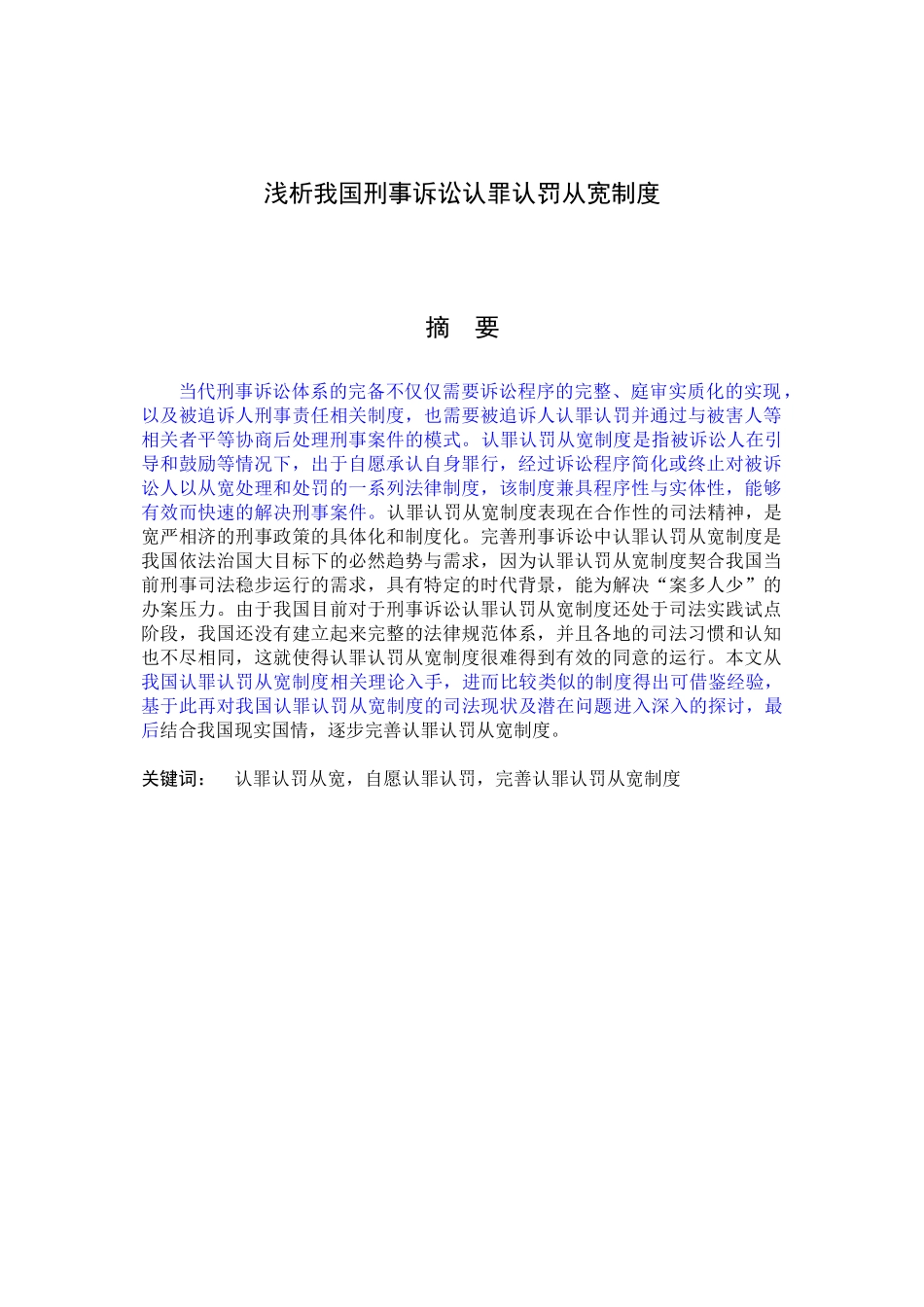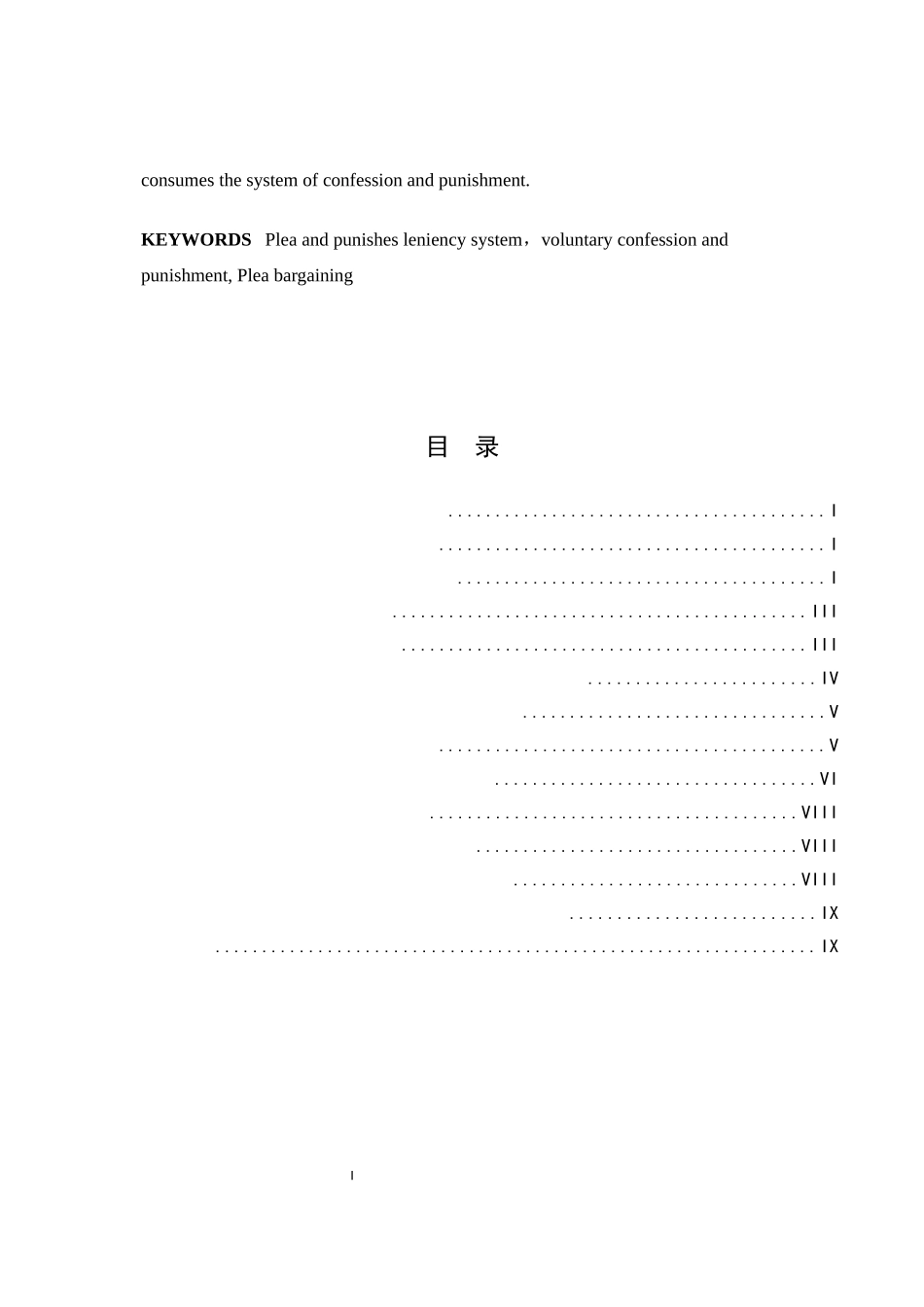浅析我国刑事诉讼认罪认罚从宽制度摘 要当代刑事诉讼体系的完备不仅仅需要诉讼程序的完整、庭审实质化的实现,以及被追诉人刑事责任相关制度,也需要被追诉人认罪认罚并通过与被害人等相关者平等协商后处理刑事案件的模式。认罪认罚从宽制度是指被诉讼人在引导和鼓励等情况下,出于自愿承认自身罪行,经过诉讼程序简化或终止对被诉讼人以从宽处理和处罚的一系列法律制度,该制度兼具程序性与实体性,能够有效而快速的解决刑事案件。认罪认罚从宽制度表现在合作性的司法精神,是宽严相济的刑事政策的具体化和制度化。完善刑事诉讼中认罪认罚从宽制度是我国依法治国大目标下的必然趋势与需求,因为认罪认罚从宽制度契合我国当前刑事司法稳步运行的需求,具有特定的时代背景,能为解决“案多人少”的办案压力。由于我国目前对于刑事诉讼认罪认罚从宽制度还处于司法实践试点阶段,我国还没有建立起来完整的法律规范体系,并且各地的司法习惯和认知也不尽相同,这就使得认罪认罚从宽制度很难得到有效的同意的运行。本文从我国认罪认罚从宽制度相关理论入手,进而比较类似的制度得出可借鉴经验,基于此再对我国认罪认罚从宽制度的司法现状及潜在问题进入深入的探讨,最后结合我国现实国情,逐步完善认罪认罚从宽制度。关键词: 认罪认罚从宽,自愿认罪认罚,完善认罪认罚从宽制度Brief Analysis on Confession, Punishment and Punishment in Criminal Lawsuit in ChinaABSTRACTThe completeness of the modern criminal procedure system requires not only the integrity of the proceedings, the realization of the substantive trial of the court, and the related system of the accused's criminal responsibility, but also the defendant's punishment and the mode of dealing with the criminal case through the equal consultation with the victims and other related persons. The system of confession and punishment leniency refers to a series of legal systems that have been voluntarily admitted to their own crimes under the circumstances of guidance and encouragement by the litigants, and the procedure simplifies or terminates a series of legal systems for the lenient treatment ...


